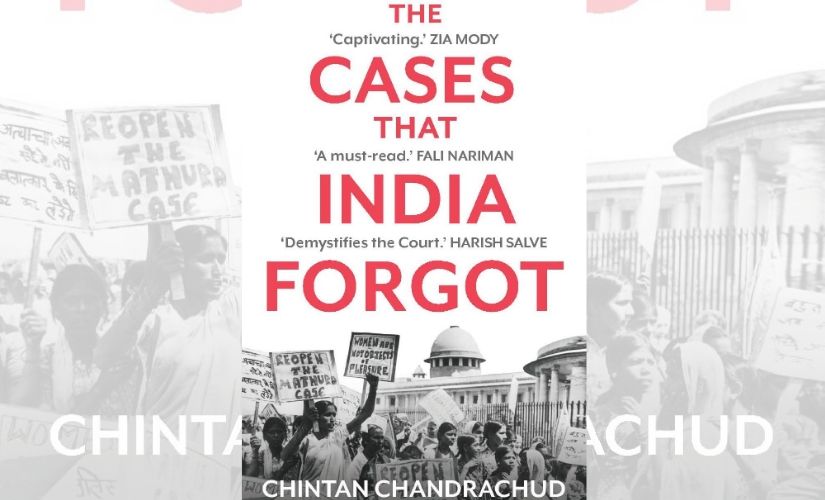“A dissent in a court of last resort is an appeal to the brooding spirit of law, to the intelligence of a future day when a later decision may possibly correct the error into which the dissenting justice believes the court to have been betrayed.”
– Charles Evan Hughes
The great American Judge, Charles Evan Hughes, had made the above reference at a lecture on the workings of the American Supreme Court; he had highlighted the absolute importance of dissenting opinions and that of judicial civility in a functional democratic state. Hughes was perhaps prescient in his observations; for Chintan Chandrachud in his latest allocates considerable emphasis on erroneous decisions and dissenting opinions from handpicked cases, that had arrived at the doorstep of the Supreme Court. All these cases resonated with profound socio-cultural consequences, but true to the title of the book, were undeniably obliviated from the public memory.

The Cases that India Forgot is a coalescence of ten such influential cases split into four sections for better understanding. Chandrachud divides the cases, albeit with an unequal smorgasbord for each bracket, into ‘Politics’, ‘Gender’, ‘Religion’ and ‘National Security’. He makes careful observations from each case, notes the cardinal considerations that went into the judgement, and refers to criticism and appreciation of the said decision. The pattern is predictable, almost like a convenient formula, yet the curious content of the cases makes the reader eager to dig deeper.
Who knew that a pamphlet distributed by a local politician would go on to assume catastrophic proportions, paralyse the administrative machinery, strain relations between state institutions and ultimately result in a constitutional crisis? Or for that matter, KPS Gill, a highly revered figure credited with eliminating Khalistani terror, would be convicted of outraging the modesty of a senior IAS officer from the Punjab cadre? Or, President APJ Abdul Kalam, by far India’s most popular, had kept a letter of resignation ready due to an implied censure of one of his decisions? The author makes a conscious attempt to awaken the reader’s inquisitiveness by regularly showering such shockers. An extensive endnotes section for further reading has also been provided for professionals, as is customary and expected of a book pertaining to the legal genre.
Written in an easy tone, the book makes for strong criticism of the Supreme Court’s failure to uphold the core principles of the Constitution over and over again. For example, the ghost of the Narasu Appa Mali case haunts the courts even today; even the far-reaching Triple Talaq decision simply skirted the question of whether uncodified personal law trumped the fundamental rights of the citizens. The court had also turned a blind eye towards the nefarious designs of the AFSPA, which gives a virtually unrestricted license to kill, arrest, search and destroy any place on the whims of an Army officer. There are countless many more examples, all of which have been picked up and evaluated in great detail.
In all, The Cases that India Forgot makes for a good read if one is interested in legalistic studies. The reader may find it slightly daunting if he has no background in Constitutional law, but Chandrachud provides for lucid explanations which fill up that void. Beyond that, it is also a step towards educating the masses on questions left open by the Supreme Court; in the hope that one day, they shall stand corrected and thereby rectify the long-standing errors made by the apex court. It minces no words in its criticism or appreciation, which makes it a solid advocate of neutral writing. Will the court take note? We can only hope and keep our fingers crossed.

One response to “An Appeal to the Law’s Brooding Spirit”
Nicely written. Will be downloading it on my Kindle and read it.
PS. Ads are annoying